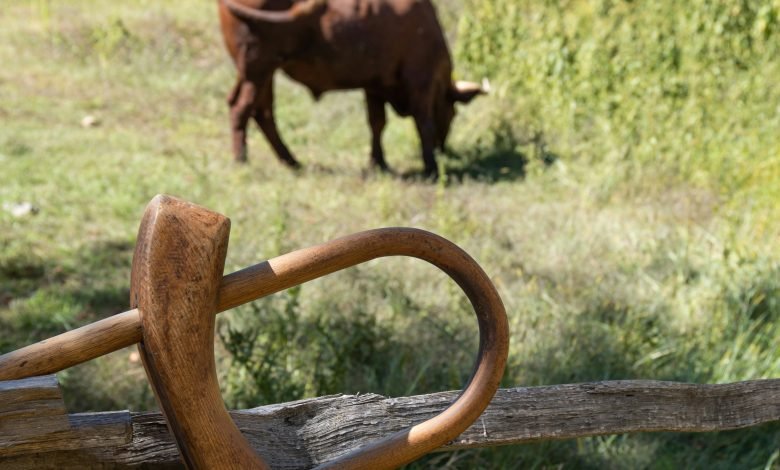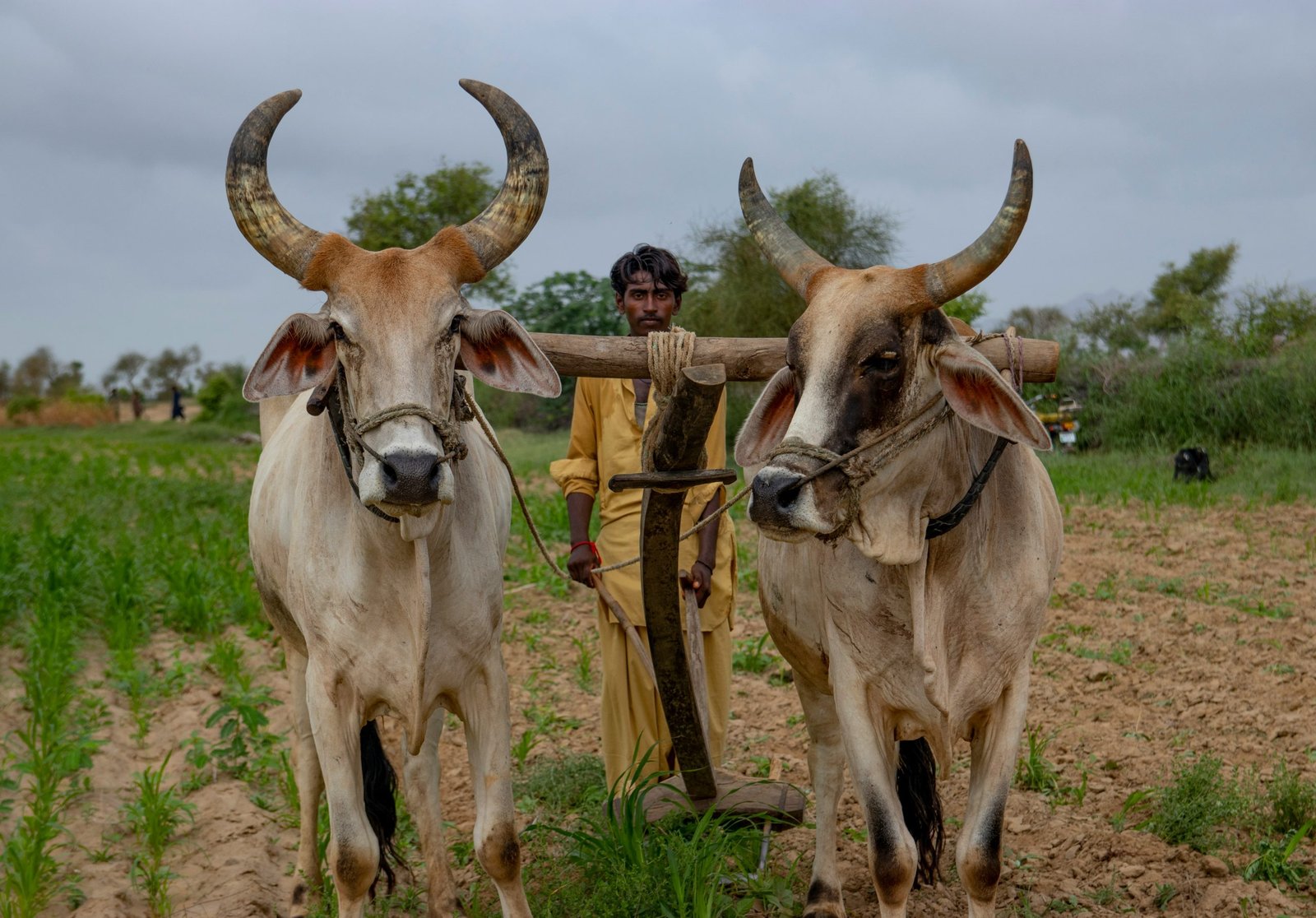
What is the yoke in the Bible and the Gospel?
What was the yoke in the Bible that Jesus referred to in the Gospel? During biblical times, this term was familiar to most people and very fitting for Jesus’ parables. Let’s define the yoke in the Bible and explore why Jesus used it in his teachings.
What is the yoke in the Bible? It is a wooden beam sometimes used between a pair of oxen or other animals to help them work together to pull a load. It is defined as “a device for joining together a pair of draft animals, especially oxen, usually consisting of a crosspiece with two bow-shaped pieces that go around the necks of the animals.”
What was the yoke in the Bible that Jesus referred to in the Gospel? During biblical times, this term was familiar to most people and very fitting for Jesus’ parables. Let’s define the yoke in the Bible and explore why Jesus used it in his teachings.
“Come to me, all you who are weary and burdened, and I will give you rest. Take my yoke upon you and learn from me, for I am gentle and humble in heart, and you will find rest for your souls. For my yoke is easy and my burden is light.” (Matthew 11:28-30)
فرست محتوا
Definition of Yoke in the Bible
According to Smith’s Bible Dictionary, a yoke in the Bible means “an agricultural implement known to be often used metaphorically for subjection, such as (1 Kings 12:4, 1 Kings 9-11), hence the ‘iron yoke’ symbolizes unbearable bondage (Jeremiah 28:48; Jeremiah 28:13).
In Easton’s Bible Dictionary, a yoke is defined as suitable for the neck of oxen to join them together so that they can draw a plow, etc. (Numbers 19:2; Deuteronomy 21:3). It was a curved piece of wood called “ol.”
Originally, the yoke was a saddle used for oxen and other animals to make pulling loads easier. It was also considered a symbol of service and carrying the burden of a task or mission. Below is an example of two oxen with a yoke:

Meaning of Yoke in the Bible
The word “yoke” is used in various ways in the Bible but often refers to a wooden frame placed on the necks of two animals to enable them to pull a plow or cart together. In this sense, the yoke represents teamwork and cooperation.
However, the word “yoke” can also be used to signify oppression and slavery. For example, in Deuteronomy, God warns the Israelites that if they disobey Him, He will place “an iron yoke” on their necks (Deuteronomy 28:48). This means their enemies will enslave them.
In the New Testament, Jesus uses the image of the yoke to describe the relationship between Himself and His followers. He says, “Take my yoke upon you and learn from me, for I am gentle and humble in heart, and you will find rest for your souls” (Matthew 11:29). This yoke represents the commitment of discipleship but also a yoke of love and service. Jesus promises His followers that if they trust in His rule, they will find true peace and joy.
Here are a few examples of how the word yoke is used in the Bible:
“And they put the yoke of oxen upon me and I plowed seven years” (Genesis 46:4). “Come and take the yoke of the Lord, for it is good” (Lamentations 3:27). “My yoke is easy, and my burden is light” (Matthew 11:30). “Bear one another’s burdens, and so fulfill the law of Christ” (Galatians 6:2).
In general, the word “yoke” in the Bible has various meanings but often represents teamwork, cooperation, and discipleship. It is a reminder that we are all called to work together to serve God and others.
The Yoke of Jesus (Yoke in the Bible)
When Jesus said, “Take my yoke upon you” (Matthew 11:29), He meant that we should submit to Him every day and in every way. The yoke was made of wood and handcrafted to fit the neck and shoulders of the animal to prevent pain or discomfort. In ancient culture, the word yoke was a term used to describe submission. Therefore, when someone was described as being yoked to a person or thing, it conveyed the idea of submission to that person or thing.
Therefore, being yoked to Jesus means serving and following Him. Before you get upset about this idea, consider this: everyone is yoked to someone or something. The question is, to whom or what do you want to be yoked? Some are yoked to the power of sin. They are under its control. Some are yoked in relationships with unbelievers, which the Bible specifically warns against.
“Do not be unequally yoked with unbelievers. For what partnership has righteousness with lawlessness? Or what fellowship has light with darkness?” (2 Corinthians 6:14)
“For freedom Christ has set us free; stand firm, therefore, and do not submit again to a yoke of slavery.” (Galatians 5:1)
“Let all who are under a yoke as slaves regard their masters as worthy of all honor, so that the name of God and the teaching may not be reviled. Those who have believing masters must not be disrespectful on the ground that they are brothers; rather, they must serve all the better since those who benefit by their good service are believers and beloved. Teach and urge these things.” (1 Timothy 6:1-2)
Read more : What is the intertestamental period in the Bible?
The Yoke in the Bible and Discipleship to Jesus
“Is this not the kind of fasting I have chosen: to loose the chains of injustice and untie the cords of the yoke, to set the oppressed free and break every yoke?” (Isaiah 58:6) Jesus, if we allow Him, will free us from the yoke of oppression and encourages us to take on His yoke instead.
He said, “Take my yoke upon you and learn from me. My yoke is easy, and my burden is light.” But why not avoid yokes altogether and do our own thing? Ironically, there is comfort in being “yoked” to something or someone when there is a benevolent being. We must learn to live from somewhere, and complete solitude can be terrifying and overwhelming. Jesus offers us the opportunity to learn from Him and make our lives easier and more meaningful by serving a righteous purpose.
Let’s consider the context of Jesus’ words. Two oxen are chosen to share a yoke. One is an older, experienced ox. He is trained and hardworking from years of routine. The other is a young, new ox. He has potential but is inexperienced. The elder teaches the younger by sharing the same yoke.
Not only this, but the more experienced one bears more of the harder pulling. Since the older ox leads, the younger one does not need to wonder what to do. He learns from his mentor and gains knowledge and skill to teach others.
This is very much like discipleship. Jesus invites us to “learn from Him,” which is another way of saying “be my disciple.” There is comfort in not having to figure out life alone. There is assurance in following His lead.
Jesus also declares that His yoke is easy. The word “easy” here does not mean “simple,” but rather “good.” If I am yoked to Jesus, there is comfort in being yoked to someone good, kind, and patient.
Translation? “Come into the yoke with me. Let me disciple you. I will bear the weight of your burden. My yoke is good, and you will find rest and companionship in our shared work.”


